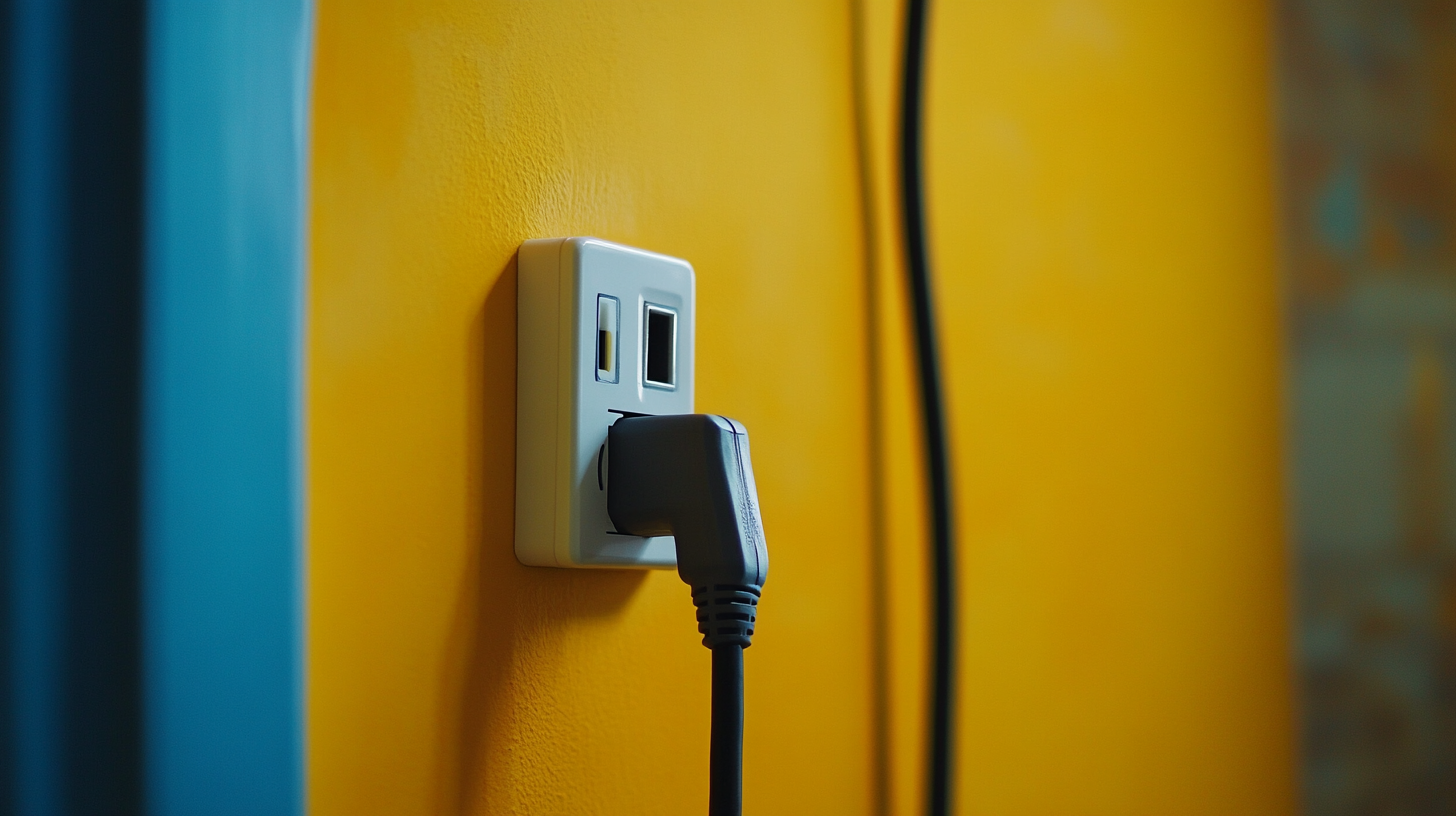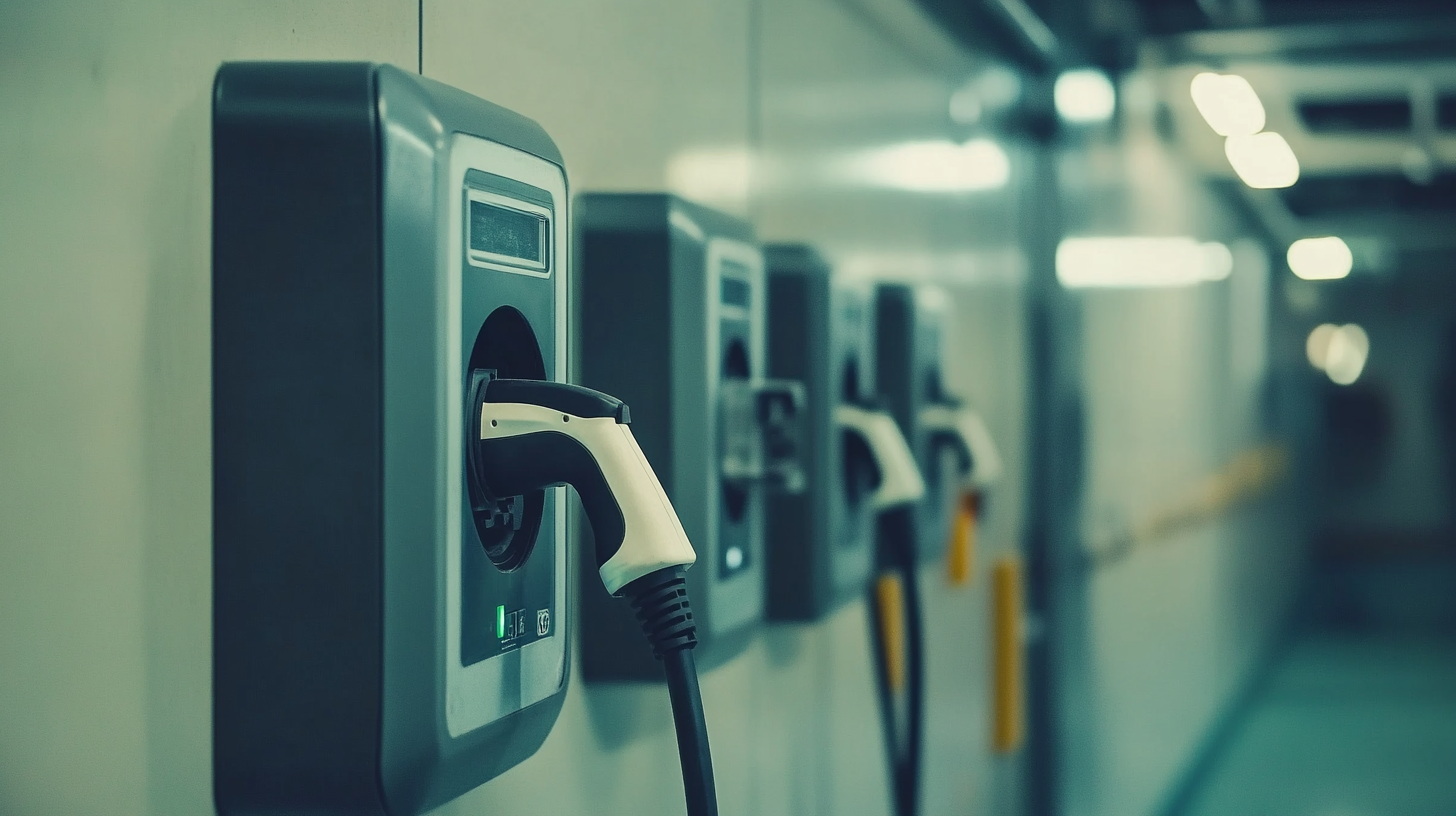In the quest for sustainable development, energy efficiency has emerged as a paramount concern across various sectors, particularly in light of recent reports highlighting that up to 30% of energy consumption in industrial facilities can be attributed to inefficiencies. According to the International Energy Agency (IEA), improving energy efficiency could reduce global greenhouse gas emissions by as much as 70% by 2050. As organizations look to enhance their sustainability practices, the adoption of innovative solutions like Energy Plugs becomes increasingly critical, serving as a transformative tool in achieving substantial energy savings.
Energy Plugs, which seamlessly integrate with existing energy infrastructure, not only facilitate real-time energy monitoring but also optimize energy usage by automatically adjusting to the needs of devices and systems. Recent studies have shown that companies implementing energy-efficient technologies can see a return on investment of up to 20% through reduced energy costs. As we delve deeper into the intricacies of sustainable procurement, understanding the role of Energy Plugs in enhancing efficiency and minimizing environmental impact will be essential for businesses striving to lead in a competitive and eco-conscious marketplace.

The rise of energy plugs marks a significant transformation in the way businesses approach procurement and sustainability. These innovative devices provide a practical solution for organizations looking to enhance their energy efficiency while also reducing operational costs. By integrating energy plugs into their existing infrastructure, companies can monitor and manage energy consumption in real-time, allowing for data-driven decisions that minimize waste and optimize usage. As more businesses recognize the global push towards sustainability, energy plugs have emerged as a pivotal tool in streamlining procurement processes. They enable organizations to ensure that their supply chains are not only efficient but also environmentally conscious. By sourcing products and services that comply with energy-efficient standards, companies can actively participate in the reduction of their carbon footprint while reaping the financial benefits that come with lowered energy costs. The adoption of energy plugs also promotes a culture of responsibility among employees. As teams become more aware of their energy consumption habits, they are likely to engage more proactively in sustainability initiatives. This shift in mindset not only fosters a more responsible workplace but also aligns the company's goals with the broader objective of global energy efficiency, creating a win-win scenario for both the business and the planet.

The economic impact of energy plugs on sustainable supply chains is a critical area of focus for businesses striving to improve their environmental footprint while maintaining profitability. Energy plugs, which facilitate better energy management and efficiency, can significantly reduce energy costs and waste throughout the supply chain. By integrating these tools, companies can optimize their operations, leading to a more cost-effective and sustainable procurement process.
Implementing energy plugs allows organizations to monitor and control energy consumption more effectively. This enhanced visibility helps identify areas where energy is being wasted, enabling businesses to take corrective actions. With reduced energy consumption comes not only lower utility bills but also a tangible decrease in greenhouse gas emissions. This aligns with global sustainability goals and can enhance a company's brand reputation among environmentally conscious consumers and stakeholders.
Moreover, the adoption of energy plugs can foster innovation within the supply chain. As companies seek to integrate these technologies, they often explore new processes and partnerships that further enhance efficiency and sustainability. This shift can lead to improved supplier relationships and the establishment of more resilient supply chains, ultimately positioning companies to thrive in an increasingly competitive market that values sustainability.

In today's fast-paced world, energy efficiency has become a crucial consideration across all sectors. As organizations strive to reduce their carbon footprint and enhance sustainability, understanding top industry standards and certifications for energy-efficient products is essential. Various certifications, such as ENERGY STAR®, Leadership in Energy and Environmental Design (LEED), and the ISO 50001 international standard, provide reliable benchmarks for consumers and businesses alike, helping them make informed procurement decisions.
ENERGY STAR® is one of the most recognized symbols of energy efficiency. Products bearing this label meet rigorous energy efficiency guidelines set by the U.S. Environmental Protection Agency (EPA). From appliances to commercial equipment, ENERGY STAR® can help businesses identify high-performing products that significantly lower energy consumption without compromising quality. Similarly, the LEED certification focuses on sustainable building practices and encourages the development of eco-friendly spaces using energy-efficient technology and materials, creating a healthier environment for occupants.
Another key certification is ISO 50001, which establishes a framework for organizations to manage energy more efficiently. By adopting this standard, companies can systematically improve their energy performance, reduce costs, and enhance competitiveness. Utilizing these standards not only aids in achieving regulatory compliance but also demonstrates a commitment to sustainability, attracting environmentally conscious consumers. By integrating these certifications into purchasing decisions, businesses can effectively contribute to global energy efficiency efforts while promoting responsible consumption.

The rise of energy efficiency solutions has positioned energy plugs as a transformative technology across numerous industries. Major corporations are increasingly recognizing their potential to not only enhance sustainability but also reduce operational costs. With the global smart plug market projected to grow significantly from $1.83 billion in 2022 to $9.24 billion by 2029, companies are eager to leverage this momentum through successful implementations.
Case studies reveal that leading organizations have integrated energy plugs into their infrastructure, reaping substantial benefits. For instance, one multinational firm reported a 30% reduction in energy consumption after deploying smart plugs across its facilities. The ability to monitor and control energy usage remotely has empowered businesses to operate more efficiently, ensuring that they comply with sustainable procurement practices while minimizing waste. These results highlight the critical role energy plugs will play in helping companies meet their sustainability goals in the coming years.
As the technology continues to advance, the adaptability of energy plugs will only enhance their appeal. With features such as programmable scheduling and usage analytics, companies can further optimize their energy consumption. The commitment to sustainability is becoming a competitive advantage, prompting industries to adopt innovative solutions like energy plugs. The transition to smarter energy management is not just a trend; it's a necessity for companies aiming to thrive in an increasingly eco-conscious market.
In an era where sustainability is paramount, the future of energy procurement is increasingly intertwined with innovations in energy efficiency. Reports indicate that energy efficiency improvements could yield global economic savings of up to $10 trillion per year by 2030, according to the International Energy Agency (IEA). This staggering potential makes it essential for organizations to adopt strategies that not only prioritize cost savings but also align with their sustainability goals.
Recent trends highlight a shift towards integrated energy management systems that utilize smart technologies. The use of Internet of Things (IoT) devices allows businesses to monitor energy consumption in real-time, enabling them to optimize usage and reduce waste. A study by McKinsey estimates that such innovations could lead to a 30% reduction in energy costs for companies that implement smart technologies effectively, providing a compelling case for investment in energy efficiency as part of sustainable procurement.
Moreover, renewable energy sources are becoming a focal point in energy procurement strategies. According to a report by Bloomberg New Energy Finance, the cost of onshore wind and solar energy has plummeted by over 80% in the last decade, making them more cost-effective than fossil fuels in many regions. As companies pivot towards procuring greener energy alternatives, they not only contribute to the global reduction of carbon emissions but also enhance their brand reputation and stakeholder trust.
The convergence of energy efficiency and sustainable procurement is poised to reshape industries. By embracing these trends and innovations, organizations can navigate the complexities of energy procurement while driving both economic and environmental benefits.